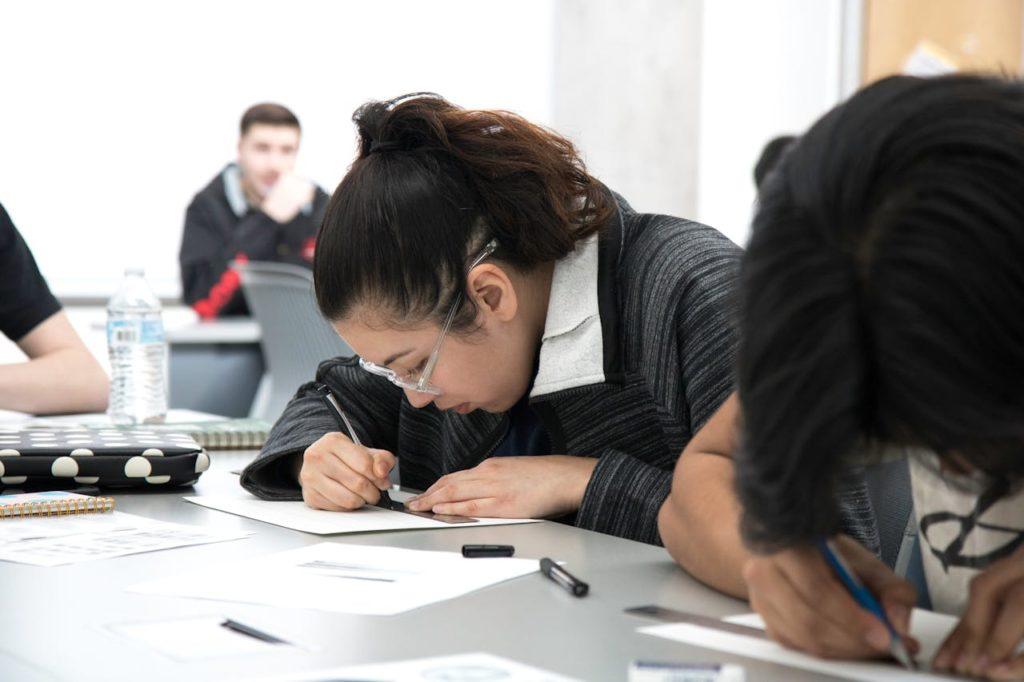As a seasoned IB writer with a wealth of experience, I find the Theory of Knowledge (TOK) fascinating, especially the Ethics Area of Knowledge (AOK). It’s a field brimming with complex debates and thought-provoking dilemmas. In my opinion, understanding Ethics within TOK is not just about academic pursuit; it’s about equipping oneself with the ability to make informed decisions in our daily lives.
Understanding Ethics in TOK
According to general IB criteria, Ethics deals with questions about what’s morally right or wrong, good or bad, fair or unfair. Unlike other Areas of Knowledge, Ethics challenges us to consider the basis of our moral judgments. From my experience, this reflective nature makes Ethics both intriguing and vital.
Some concepts, such as moral principles and theories like utilitarianism and deontology, provide a framework for this exploration. As I know, these concepts encourage students to weigh the outcomes of their actions and the moral duties they owe to others. Moreover, the role of reason and emotion in ethical knowledge invites a deeper understanding of our biases and the complexity of ethical decision-making.
To further illustrate the depth and breadth of Ethics AOK, consider the following aspects:
- Moral Relativism vs. Moral Absolutism. This contrast helps students appreciate the diversity of moral perspectives and the challenges in defining universal ethical standards.
- The Trolley Problem and Other Ethical Dilemmas. These thought experiments challenge students to apply ethical theories to tough situations and show practical difficulties in decision-making.
- Ethics in Technology and AI. Examining the ethical considerations in developing and using artificial intelligence and technology prompts critical thinking about future implications.
- Global Ethics and Sustainability. Discussing our ethical responsibilities toward global challenges, such as climate change and inequality, encourages students to think about the broader impact of their actions.
- Personal vs. Societal Ethics. Exploring the tension between individual moral beliefs and societal norms helps students overcome the complexities of living in diverse communities.
From my experience, integrating these aspects into the Ethics AOK curriculum not only broadens students’ understanding but also prepares them to tackle ethical questions with a well-rounded perspective. Ethics in TOK is vital in building the moral reasoning necessary in our increasingly complex world.
Key Concepts in Ethics Area of Knowledge
From my extensive experience as an IB educator, I’ve found that grounding students in these foundational concepts enhances their grasp of ethical theories and equips them with the tools to analyze ethical dilemmas.
Moral Principles and Theories
At the heart of Ethics AOK are the moral principles and theories that provide a framework for evaluating actions, intentions, and outcomes:
- Utilitarianism. This theory posits that the morality of an action is determined by its outcome, with the most ethical choice being the one that maximizes happiness or utility for the most significant number of people. Utilitarianism challenges students to consider the broader impacts of their actions.
- Deontology. In contrast, deontology emphasizes the importance of duty, rules, and intentions over outcomes. It argues that specific actions are inherently right or wrong, regardless of their consequences. Deontology invites students to reflect on the principles that underpin their moral judgments.
These theories stand out as they offer contrasting approaches to ethical decision-making.
The Role of Reason and Emotion
Another concept in Ethics AOK is the role of reason and emotion in ethical knowledge:
- Reason. Ethical reasoning involves logically analyzing situations and applying moral principles to determine the right action. It encourages students to approach ethical dilemmas with critical thinking.
- Emotion. Emotions play a significant role in shaping our ethical intuitions and judgments. Feelings of empathy, guilt, or outrage can profoundly influence our perception of what is morally right or wrong.
In my experience, acknowledging the impact of emotion on ethical decision-making helps students appreciate the complexity of moral reasoning and the importance of empathy in understanding ethical dilemmas.
Ethical Relativism vs. Ethical Absolutism
The debate between ethical relativism and ethical absolutism is central to the study of Ethics AOK:
- Ethical Relativism. This viewpoint suggests that what is considered morally right or wrong varies from culture to culture and that no absolute ethical standards exist. It challenges students to appreciate the diversity of moral perspectives.
- Ethical Absolutism. Conversely, ethical absolutism argues that certain ethical principles are universally valid, regardless of cultural differences. This concept prompts students to consider the possibility of universal moral truths.
This discussion encourages students to explore the extent to which moral standards are culturally determined or universally applicable.
Rights and Responsibilities
The concepts of rights and responsibilities are integral to the Ethics AOK, emphasizing the importance of balancing individual freedoms with the welfare of others. By exploring these ideas, students can better understand the ethical underpinnings of social norms and legal systems and develop a sense of moral duty and social responsibility.

The Role of Ethics in TOK AOKs
Ethics intersects with other Areas of Knowledge in fascinating ways. In my opinion, this interconnectivity underscores the ubiquity and importance of ethical considerations.
In the Natural Sciences
In the natural sciences AOK, ethical issues are critical. Strict ethical criteria regulate human and animal subject research to promote respect, dignity, and safety. The arguments over genetic engineering, stem cell research, and climate engineering show how ethical issues drive research conduct and scientific progress’s societal ramifications. In my opinion, these conversations highlight scientists’ responsibilities to balance the quest for knowledge and ethical considerations to benefit all living creatures.
In the Human Sciences
The influence of ethics on human sciences AOK is equally essential. Ethical considerations impact research methodology and how findings are understood and used in this context. Questions like privacy, permission, and the possibility of bias in psychology, sociology, and economics studies emphasize researchers’ ethical issues. I believe engaging with these ethical questions is critical for ensuring that pursuing knowledge helps society while protecting human rights and dignity.
In the Arts
Ethics in the arts TOK AOK might seem less obvious initially, but it is profoundly impactful. Ethical judgments shape both the creation and appreciation of art, influencing debates about censorship, representation, and the social responsibilities of artists. Art, in my opinion, has the power to question societal conventions, spark debate, and motivate action. As a result, ethical issues become critical to understanding the influence of art on society and the individual’s responsibility in engaging with it ethically.
The Broader Implications
This synergy between Ethics and other AOKs discloses a deeper truth about the nature of knowledge. Ethical considerations are not mere add-ons or constraints but integral to the inquiry, creation, and interpretation process. I believe recognizing this interconnectedness is crucial for students as they deal with the complexities of the TOK curriculum and beyond.
How to Use Ethics AOK in TOK Essay?
Drawing from my extensive experience as an IB educator and writer, integrating Ethics Areas of Knowledge into your Theory of Knowledge essay can significantly enrich your analysis and argumentation.
1. Choose a Relevant Knowledge Question
Begin by choosing a knowledge question (KQ) that naturally intersects with ethical considerations. This could involve exploring the ethical implications of knowledge production, the role of moral reasoning in understanding human behavior, or the impact of ethical considerations on scientific progress. In my experience, a well-chosen KQ can illuminate the complexities of ethics in knowledge exploration, providing a solid foundation for your essay.
2. Illustrate with Real-World Examples
To demonstrate your understanding of Ethics AOK, integrate real-world examples highlighting ethical dilemmas or considerations. From my perspective, examples from current events, historical incidents, or even personal experiences can vividly showcase the relevance of ethical reasoning in shaping our understanding and actions. Ensure these examples directly relate to your KQ, underscoring the practical implications of ethics in pursuing knowledge.

Need help with your IB TOK essay?
From research and analysis to structuring and editing, our skilled mentors will be by your side, helping you write an exceptional TOK essay that meets the word count and stringent IB criteria.
3. Analyze Using Ethical Theories
To deepen your analysis, incorporate ethical theories, such as utilitarianism, deontology, or virtue ethics. As I know, applying these theories to your examples can offer nuanced insights into the ethical dimensions of your KQ, allowing you to explore different perspectives on what constitutes moral action or decision-making. According to general IB criteria, engaging with these theories showcases your analytical skills and ethical understanding.
4. Reflect on the Role of Bias and Perspective
Ethics AOK invites consideration of how personal biases, cultural backgrounds, and societal norms influence ethical reasoning and judgments. Reflecting on these factors in your essay can provide a more comprehensive understanding of the ethical considerations. Discussing the role of bias and perspective adheres to the TOK essay criteria and demonstrates your awareness of the complexities inherent in ethical analysis.
5. Conclude with Implications for Knowledge
Finally, consider the broader implications of your analysis for producing and applying knowledge. From my experience, concluding your essay by reflecting on how ethical considerations influence the value, limitations, and responsibilities associated with knowledge invites a higher level of intellectual engagement. It fulfills the TOK essay requirements and positions you as a thoughtful and reflective learner.
The Bottom Line
Thus, Ethics in TOK offers a profound opportunity for personal and intellectual growth. Based on my extensive experience, I can attest that studying Ethics in TOK is academically rewarding. I invite you to reflect on your beliefs and how they influence your decisions. Participate in classroom debates, engage in discussions, and confront the ethical dilemmas you encounter. And if you need some help with TOK essay writing, remember that our IB experts are always by your side.
Luke MacQuoid
Luke MacQuoid has extensive experience teaching English as a foreign language in Japan, having worked with students of all ages for over 12 years. Currently, he is teaching at the tertiary level. Luke holds a BA from the University of Sussex and an MA in TESOL from Lancaster University, both located in England. As well to his work as an IB Examiner and Master Tutor, Luke also enjoys sharing his experiences and insights with others through writing articles for various websites, including extendedessaywriters.com blog
- The Impact of Personal Beliefs on Knowledge Interpretation in TOKby Luke MacQuoid
- The Psychology Behind Knowledge Acquisitionby Luke MacQuoid
- Debunking TOK Myths. Clarifying Common Misconceptionsby Luke MacQuoid
- The Future of the Theory of Knowledgeby Luke MacQuoid
- History of IB TOK Course: Who Invented IB TOK?by Luke MacQuoid
- Critical Thinking Skills in TOK Essay Writingby Luke MacQuoid





